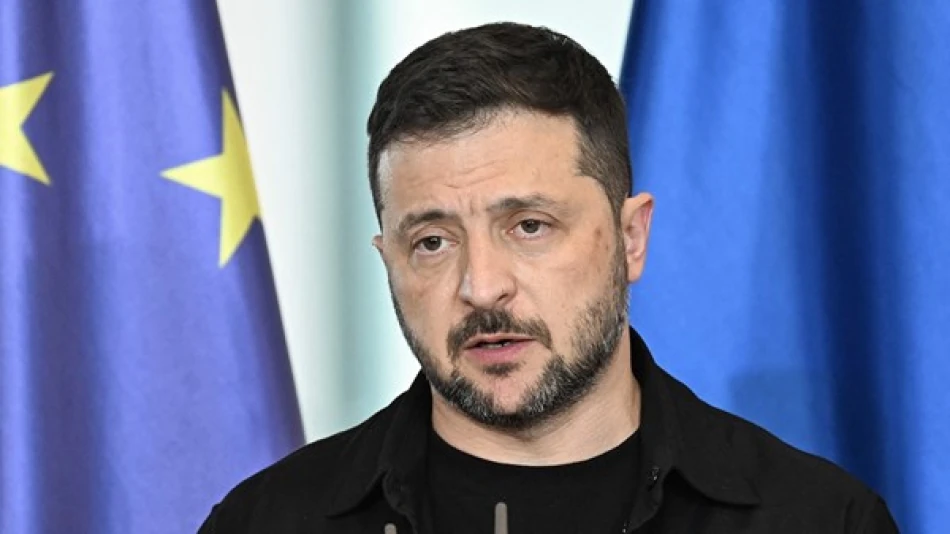
Ukrainian President Weighs in on Trump-Putin Summit in Alaska
Zelensky Warns of Putin's Pre-Summit Pressure Campaign as Trump-Russia Talks Loom
Ukrainian President Volodymyr Zelensky has accused Russia of intensifying military operations across all fronts in a calculated attempt to strengthen Vladimir Putin's negotiating position ahead of crucial talks with Donald Trump in Alaska this Friday. The Ukrainian leader warned that Putin is deliberately escalating pressure to demonstrate Russia's capability to seize all Ukrainian territory before potential ceasefire discussions begin.
Ukraine Demands Seat at the Table
Speaking at a joint press conference in Berlin with German Chancellor Friedrich Merz on Wednesday, Zelensky expressed hope that the anticipated Trump-Putin summit would focus on achieving a ceasefire. However, he insisted that any negotiations concerning Ukraine's future must include Kyiv as a direct participant, proposing a three-way meeting format.
"Putin is trying to apply pressure before the Alaska meeting on all parts of the Ukrainian front," Zelensky stated. "Russia is attempting to show its ability to annex all of Ukraine's territory."
Strategic Timing Reveals Moscow's Negotiation Tactics
The timing of Russia's alleged escalation follows a well-established pattern in international conflict resolution, where parties seek to maximize their leverage immediately before diplomatic engagement. This approach mirrors tactics used in previous conflicts, from the Vietnam War's final phases to more recent Middle Eastern ceasefires, where military pressure intensifies as negotiating tables are prepared.
Zelensky's warning to both Trump and European leaders about Russian intentions suggests Ukraine views the upcoming Alaska summit with significant concern. The Ukrainian president's insistence on direct participation reflects fears that major powers might negotiate Ukraine's fate without Ukrainian input—a scenario reminiscent of historical great power diplomacy that often sidelined smaller nations.
High Stakes for Regional Stability
The Alaska meeting represents the first direct diplomatic engagement between Trump and Putin since the former president's return to office, occurring nearly three years after Russia's February 2022 invasion. The choice of Alaska as a venue carries symbolic weight, representing neutral ground between the two superpowers while avoiding the political sensitivities of meeting in either nation's capital.
For European allies, particularly Germany, the summit's outcome will determine whether the continent faces continued military and economic pressure from the prolonged conflict. Germany's support for Ukraine, including substantial military aid and refugee assistance, makes Berlin a crucial stakeholder in any potential resolution.
Uncertain Path to Peace
While ceasefire discussions could provide temporary relief from the devastating conflict, fundamental questions remain about territorial arrangements, security guarantees, and reconstruction responsibilities. Ukraine's insistence on participating directly in negotiations reflects hard-learned lessons from previous international agreements that failed to account for smaller nations' core interests.
The success of any Trump-Putin dialogue will likely depend on whether both leaders can move beyond maximalist positions toward pragmatic compromise—a challenging prospect given the deep mistrust and conflicting strategic objectives that have defined this conflict from its inception.
Most Viewed News

 Layla Al Mansoori
Layla Al Mansoori






